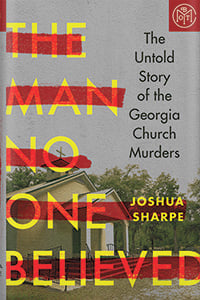

True crime
American Fire
by Monica Hesse
Quick take
American Fire has a larger scope than just arson, and the story Hesse tells is grander than a simple crime spree plaguing a small town.
Synopsis
The arsons started on a cold November midnight and didn’t stop for months. Night after night, the people of Accomack County waited to see which building would burn down next, regarding each other at first with compassion, and later suspicion. Vigilante groups sprang up, patrolling the rural Virginia coast with cameras and camouflage. Volunteer firefighters slept at their stations. The arsonist seemed to target abandoned buildings, but local police were stretched too thin to surveil them all.
The culprit, and the path that led to these crimes, is a story of twenty-first century America. Washington Post reporter Monica Hesse first drove down to the reeling county to cover a hearing for Charlie Smith, a struggling mechanic who upon his capture had promptly pleaded guilty to sixty-seven counts of arson. But as Charlie’s confession unspooled, it got deeper and weirder. He wasn’t lighting fires alone; his crimes were galvanized by a surprising love story. Though it’s hard to believe today, one hundred years ago Accomack was the richest rural county in the nation. Slowly it’s been drained of its industry'”agriculture'”as well as its wealth and population. In an already remote region, limited employment options offer little in the way of opportunity.
A mesmerizing and crucial panorama with nationwide implications, American Fire asks what happens when a community gets left behind. Hesse brings to life the Eastern Shore and its inhabitants, battling a punishing economy and increasingly terrified by a string of fires they could not explain. The result evokes the soul of rural America'”a land half gutted before the fires even began.
Read a sample
Why I love it
Elizabeth Kiefer
Refinery 29
I have a confession to make: Over the last few years, I have become obsessed with true crime. From Serial to Making a Murderer and The People v. O.J. Simpson, it’s become my go-to genre. But the fixation really started more than a decade ago, when I was introduced to a book that remains among my top recommendations to this day: In Cold Blood by Truman Capote—a work of reportage and suspense that is truly in a league of its own.
Well, at least it used to be. As of this summer, American Fire joins that league, too.
In American Fire, journalist Monica Hesse takes us on a journey to Accomack County, Virginia, where just a few years ago someone was burning down (mostly abandoned) buildings and houses, night after night, with no sign of stopping. Volunteer firefighters slept at the stations; citizen detectives patrolled the rural Virginia town from dusk to dawn, hoping to catch the pyromaniac in action, roaming around in the darkness. 'œSome people light things on fire because they feel like they have to,' Hesse writes early on in the book, long before the case is even close to being cracked.
But of course, American Fire has a larger scope than just arson, and the story Hesse tells is grander than a simple crime spree plaguing a small town. It’s about the struggles of a community in the aftermath of the recession—one that was already half-wrecked before a single fire began to burn—and the impact it had on the people who live there. It’s also a story about desperation and a Bonnie & Clyde-esque love affair that is almost literally aflame, and about how love can make you do crazy, dangerous things.
Most importantly, American Fire is an astonishing work of journalism that I love for the same reasons that I was first mesmerized by In Cold Blood. While reading it, I couldn’t stop thinking about how many hours Hesse must have spent reporting this book—the dozens of people she talked to, the many notebooks she must have gone through, how long it took to fact check down to the tiniest detail. From a journalist's-eye view, this book is a masterpiece; from a literary perspective, American Fire is one of the best examples of storytelling that has come our way in a damned long time.
Either way: You’re going to want this one on your bookshelf. It’s not just stranger than fiction. It’s better, because it’s all true.



